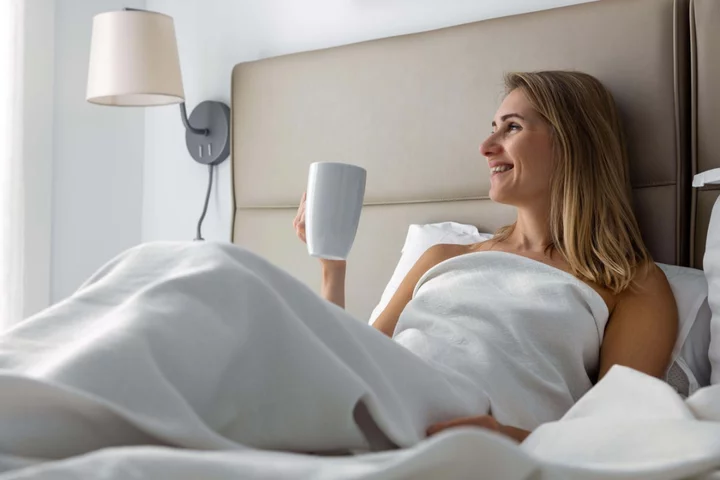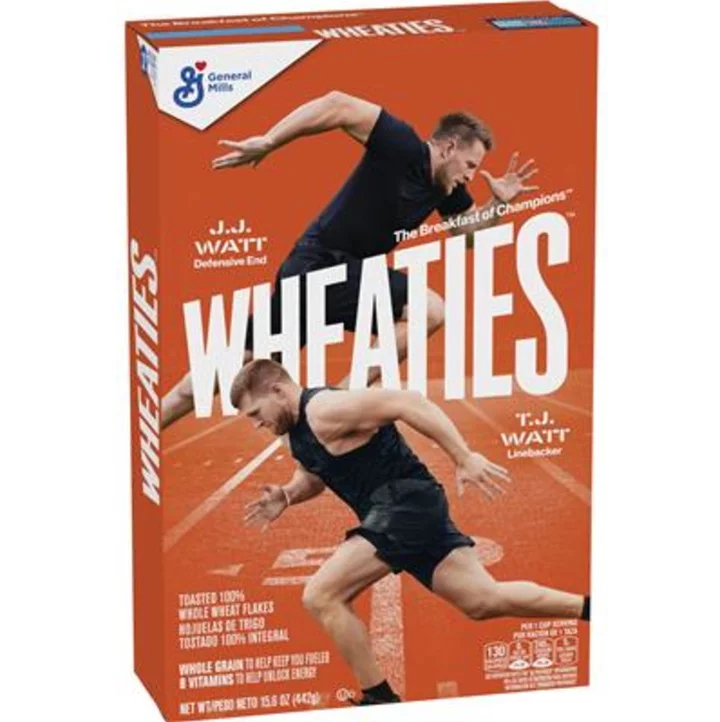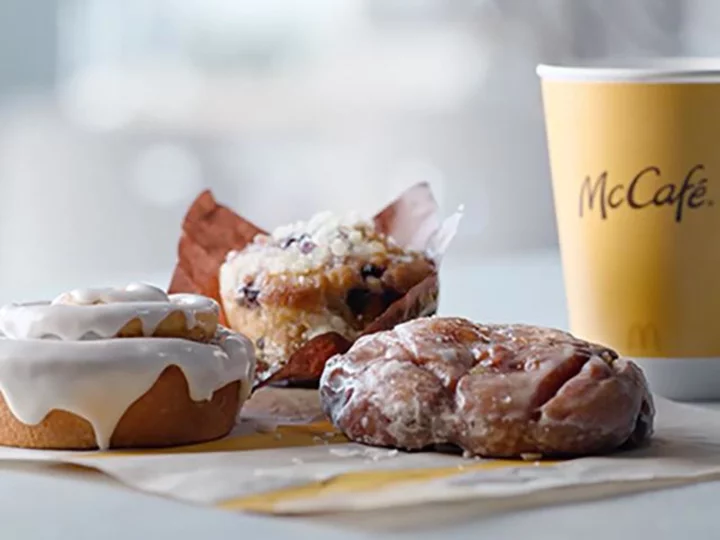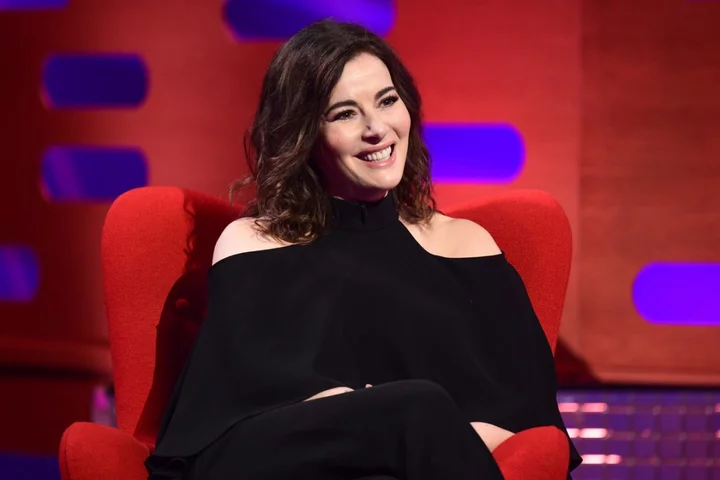
Ryan Bartlett Named Chief Technology Officer at Food and Ag Gene Editing Leader, Pairwise
DURHAM, N.C.--(BUSINESS WIRE)--Jul 11, 2023--
2023-07-11 22:28

Emilia Clarke’s brain haemorrhage ‘profoundly changed our lives’, says star’s mother
Emilia Clarke’s mother has described how her daughter’s brain haemorrhage changed the Clarke family “in an instant”. Emilia, who played Daenerys Targaryen on Game Of Thrones, and her mother set up a brain injury charity after the star survived two life-threatening brain conditions while she was filming the hit TV show. Jenny Clarke said it feels like her daughter’s brain haemorrhage – a bleed on the brain – “feels like yesterday” even though it was more than a decade ago. The incident, which took place when Emilia was working out in a north London gym in 2011, was “completely out of the blue”, Jenny said. She said her daughter fought to stay conscious even though she was in “the worst pain she could ever imagine”. Emilia, now aged 36, was taken to a hospital in London but medics did not immediately spot that she had suffered a brain haemorrhage and it took “a long time” before she was sent to a specialist hospital where she received life-saving care, Jenny told the PA news agency. Jenny said there needs to be more awareness among medics about brain haemorrhages in young people because the condition is traditionally seen as something that happens to older people. Emilia also had to have a second procedure in 2013 where surgeons in New York had to remove a brain aneurysm which was found through routine check-ups. The Me Before You star and her mother have since set up the charity SameYou which is working to develop better recovery treatment for survivors of brain injury and stroke. Jenny, who is chief executive of the charity, said that rehabilitation after brain injury is “undervalued and under-prioritised” and should be a “key component of universal health coverage”. She said that while people with serious side effects of brain injury – such as mobility or speech and language problems – do get support, there is often little or no help for people who suffer mild to moderate problems. Jenny told PA: “It feels like yesterday to us really, because it was just such a profound shock. “She had just started Game Of Thrones, the first season had been filmed and she had just come back from a press tour. “And then she had her first brain haemorrhage which was completely out of the blue – it was a morning in March and she was in the gym and she suddenly felt this terrible pain in her head – she’s been quoted as saying it was the worst pain she could ever imagine. “She also realised that something was seriously wrong with her because the pain was so intense. “So she did her best, as she was lying semi-unconscious on the floor of the gym, to try and make sure she kept a sense of what was around her and she fought to make sure that she didn’t lose consciousness.” Jenny added: “When she was rushed to a hospital in London, it was very difficult to establish what has happened to her – and that’s also something that we think is very important; maybe there isn’t enough specialist information and training to actually recognise what happens when you have a brain haemorrhage when you’re young. “People expect people to have strokes and brain haemorrhages when they’re older, it’s a problem of older age, but Emilia was 23 when she had her first brain haemorrhage, so people didn’t recognise it as a brain haemorrhage. “So it took a long time before she was admitted to the wonderful Queen Square (the National Hospital for Neurology and Neurosurgery), which is part of University College London Hospitals and literally her life was saved because of an intervention to stop the bleeding. “But it was three weeks in hospital before we knew whether she was going to have another stroke, and whether she would have different health problems as a result of the brain haemorrhage.” Jenny continued: “When it comes completely out of the blue, your life is just changed in an instant. And I must say that our lives have been continuously changed because of it.” After describing the second “open head surgery” in the US, Jenny said: “Those two great big shocks really have profoundly changed all of us as a family.” The comments come as Jenny attended the launch of the World Health Organisation’s (WHO) Rehabilitation Alliance in Geneva – a coalition which is calling on countries to do more for people in need of rehabilitation services. Jenny delivered a speech to the WHO about the power of advocacy, saying: “There is huge power if survivors come together with one voice to demand that integrated rehabilitation is moved up the agenda. “One in three people will experience a brain injury. They are the most powerful advocates – and this meeting is calling for their needs to be heard and action to be taken.” On rehabilitation for brain injury survivors, she told PA: “As a young person… when something like this happens, you absolutely must have as much support as possible and it just doesn’t really exist. “If you have severe consequences of brain injury, of course, there are many places helping people if you’ve got strong long-term, serious conditions, but what we found was, is that you can have mild to moderate brain injury – and that means you don’t have any necessarily physical issues; you don’t have necessarily any speech and language difficulties, but you do always have the trauma that you’ve had the problem – and there is a just a huge lack of awareness that this is important enough to put resources to get it treated.” She added: “Rehabilitation is undervalued and under-prioritised and that’s clearly got to change as a key component of universal health coverage. “It was such a shock when it happened to us, when Emilia had her brain injury. “We’ve had thousands of people write to us, and so it’s not just our own lived experience, there’s just not enough provision, not enough services available. “There is a great unmet need and a gap in service provision after you’ve survived a brain injury, and you’re trying to rebuild your life, particularly if you’re a young adult. “And what we are advocating for is there needs to be a lot more information given to survivors of brain injury, about what’s happened to them and their opportunity to get recovery services. “There is a gap between what survivors and their families say they need and want and what is currently available in many developed countries.” Read More It took until my thirties to realise I might not be white Carrie Johnson announces birth of third child with Boris Johnson: ‘Guess which name my husband chose’ Buckingham Palace responds to Joe Biden’s ‘protocol breach’ with King Charles Charity boss speaks out over ‘traumatic’ encounter with royal aide Ukraine war’s heaviest fight rages in east - follow live
2023-07-11 22:28

What is ‘bed rotting’ and is it actually self-care?
With 3.2 million views of the TikTok tag ‘bed rotting’ and copious videos, it seems Gen Z are embracing a slower pace of life, with self-care happening in bed. Creators are sharing their morning routines and experiences of bed rotting for self-care, but the trend has come under fire for its potential health implications. Content creator Vanessa Hill describes it in her video as: “When you do literally nothing but laying in bed. It is the end of optimisation.” According to psychologist and The Beekeeper House founder and CEO Robert Common, “Bed rotting is the practice of spending an extended amount of time during your normal waking hours, or even a whole day, lying in bed. You could be watching films, scrolling on social media, talking on the phone, eating, or anything you would normally do if you were at home relaxing. “This differs from bed rest to recover from illness or injury, and is often used as a method of dealing with stress or anxiety, or as a self-care tool,” he explains. This is a shunning of hustle culture and productivity in the pursuit of self-care. “Although bed rotting might be the hottest self-care method trending on TikTok, the idea behind it isn’t new,” says Common. “People have been taking ‘duvet days’ for a long time now, and many companies even have policies around this, allowing staff an entitlement to several duvet days per year. “What we are seeing with this trend is more a case of social media driving conversations among young people. It could be especially appealing to Gen Zs, as many report feeling more stressed than other generations, so taking time away from it all to recuperate mentally could be especially appealing,” he explains. But, is it actually self-care or is it doing more harm than good? The benefits There are some positive aspects to this grimly named practice. “Taking some mental downtime to recharge has many benefits,” says Common. “We live in a very fast-paced world, so stepping back, reconnecting with yourself, recharging your batteries and rebuilding some mental and physical energy is always a positive thing to do. In fact, it’s something that more of us should be scheduling into our routines if we can. “Having this downtime puts us in a stronger position to reassess our goals and find the motivation to reach for them, manage our commitments and explore personal interests and hobbies without burning ourselves out,” he explains. Damage to mental health and physical wellbeing “Spending the odd day here and there throughout the month bed rotting is unlikely to do you any damage – quite the reverse. However, as with all things in life, balance is key,” explains Common. For example, “If bed rotting becomes a dominating factor or behaviour in how you spend your free time, this could be an indicator of depression or burnout. If you suspect you’re experiencing these – or other underlying health issues – it’s important to seek appropriate support to help identify the root causes, and find healthy ways to manage them,” he says. Other practices may be more beneficial. “Whilst rest is important for wellbeing, exercise is also a powerful tool for maintaining good mental and physical health, so ultimately, it’s about not being on either extreme of the spectrum.” Impact on sleep Bed rotting can impact the amount and the quality of sleep you get, too. “An important factor of good sleep hygiene is reserving your bed for sleeping only,” Common says. “Watching Netflix, scrolling on your phone and eating are some of the most obvious activities that go hand-in-hand with bed rotting, but it can make it harder to follow a good sleep schedule. “It’s also important to expend enough energy during the day to fall asleep on time, and maximise the benefits that come with proper sleep,” he says. So, while a few duvet days here and there could be counted as self-care, bed rotting too often may leave you worn out and unhappy. Read More Charity boss speaks out over ‘traumatic’ encounter with royal aide Ukraine war’s heaviest fight rages in east - follow live Beekeeping has gone viral – but how easy is it? Women in certain professions ‘may be at higher risk of ovarian cancer’ – study Everything you need to know about sleep in pregnancy
2023-07-11 21:52

Wheaties Unveils Football Pros and Brothers J.J and T.J. Watt as the Next Faces of the Iconic Wheaties™ Box
MINNEAPOLIS--(BUSINESS WIRE)--Jul 11, 2023--
2023-07-11 21:19

Norse Atlantic Airways Expands Winter Schedule with New Direct Flights from Miami to Paris and Berlin
FORT LAUDERDALE, Fla.--(BUSINESS WIRE)--Jul 11, 2023--
2023-07-11 20:54

McDonald's is getting rid of these sweet menu items
McDonald's is discontinuing its selection of baked goods less than three years after their debut.
2023-07-11 20:29

Yerbaé Launches Two New Flavors - Lemonade and Yuzu Lime Across 348 Sprouts Farmers Market Stores
SCOTTSDALE, Ariz.--(BUSINESS WIRE)--Jul 11, 2023--
2023-07-11 20:29

New NTT Joint Venture Using AI and IoT to Advance Sustainable Food Security Worldwide
TOKYO--(BUSINESS WIRE)--Jul 11, 2023--
2023-07-11 20:16

SunOpta Enters Nutritional Beverage Category via Partnership with BellRing Brands
MINNEAPOLIS--(BUSINESS WIRE)--Jul 11, 2023--
2023-07-11 20:00

Avenue Bellevue Sets New Record With $14.35M Penthouse Sale
BELLEVUE, Wash.--(BUSINESS WIRE)--Jul 11, 2023--
2023-07-11 19:21

'Too much': Burger King's new offering in Thailand has no meat and 20 slices of cheese
Burger King is causing a stir in Thailand with its new offering: a burger with no meat and a jaw-dropping amount of cheese.
2023-07-11 18:55

Nigella Lawson says she rarely hosts extravagant dinner parties anymore
Nigella Lawson is ditching extravagant dinner parties for more relaxed mealtimes with friends. You might have assumed that the celebrity chef and food writer, who is known for the polished, decadant style of her TV cooking shows, regularly hosts glamorous dinner parties for her friends and family. But in a new interview, Lawson, 63, has explained that this is now a rare occurrence, and that she prefers to serve Twiglets to her friends instead. “I’ll have a person or a couple of people over quite often and I keep planning to have people round in a proper, grown-up way but I haven’t yet,” the food writer told The Times, explaining she has got “out of the habit” of hosting dinner parties. Lawson revealed that she prefers a more relaxed environment and would happily encourage her friends to arrive at her home wearing their pyjamas. “I’m very happy for a friend to come over in their pyjamas to have supper.” “I recently served Twiglets as a starter,” she told the publication. “There were some Americans there and I felt it my duty to introduce them.” She added that the idea of clearing plates, knives and forks before the main course is “so unrelaxing” and can make things feel “choreographed”. “I like to do a big plate of food, taking it out and seeing everyone eat. I like abundance and I feel that’s easier to do with one course,” she said. When she does host friends, Lawson prefers a more laid-back buffet-style dinner. At her open-plan home in Chelsea, she has two tables, one for the people to be seated at, and one for the food. “I think narrow tables are better for conversation, so we sit at one and I put the dinner on the other so people can help themselves.” It comes as Lawson responded to a viral “girl dinner” trend that is sweeping the internet. On Saturday, The New York Times detailed the new TikTok phenomenon in an article with the headline: “Is It a Meal? A Snack? No, It’s ‘Girl Dinner’”. According to the publication, the phrase was coined a few months ago by TikTok user Olivia Maher, who posted a video in which she spoke about the virtues of a medieval-style dinner. “I can’t find the TikTok right now but a girl just came on here and said in the Medieval times, peasants had to eat nothing but bread and cheese and how awful that was,” she says in the clip, which has since been watched more then one million times. “And she was like, ‘That’s my ideal meal,’” Maher added before showing her dinner to the camera, revealing a selection of bread, cheese, grapes and pickles. The article has prompted a mixed response on social media, with some accusing it of promoting disordered eating while others claim the diet is nothing new and mimics those adopted by mediterranean cultures. Lawson responded to the article by tweeting: “And we call them Picky Bits.” Read More Woman shares co-worker’s ‘infuriating’ response to her decision to not have children 5 late summer blooms to plant now Buckingham Palace responds to Joe Biden’s ‘protocol breach’ with King Charles ‘We call them Picky Bits’: Nigella Lawson responds to viral ‘Girl Dinner’ trend Get set for Wimbledon with top pastry chef’s strawberry recipes How to cook kohlrabi
2023-07-11 18:49
